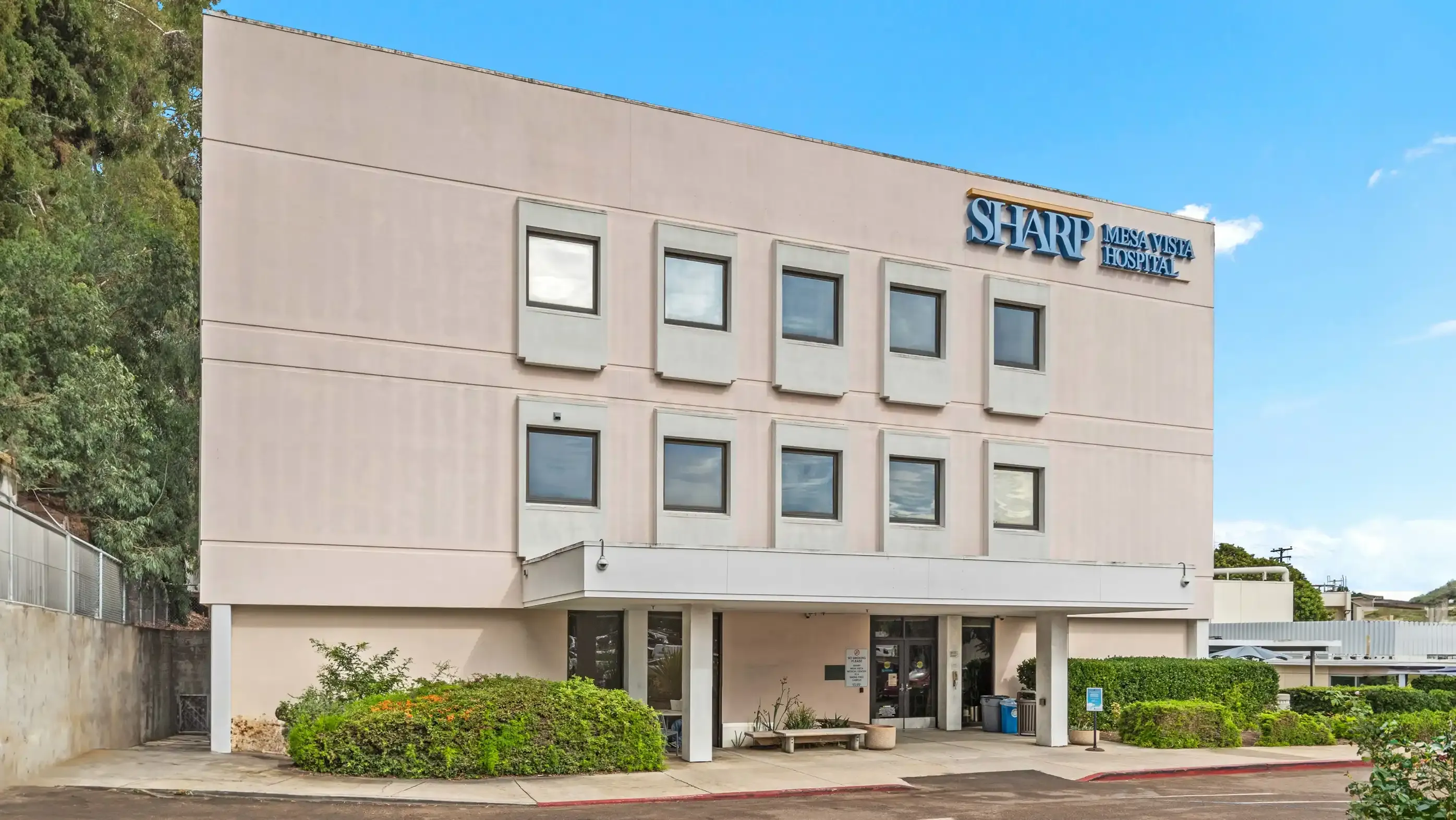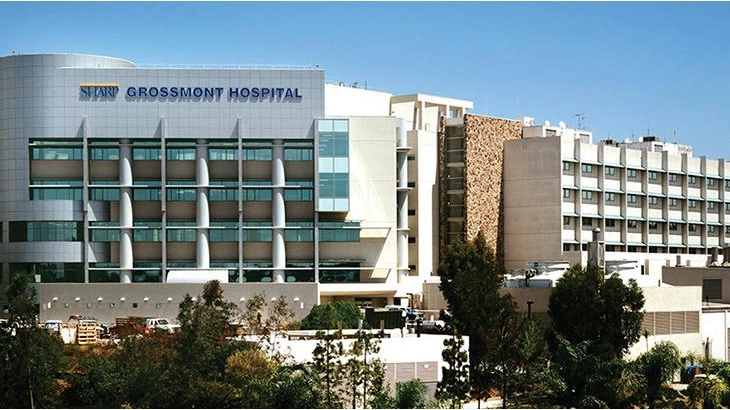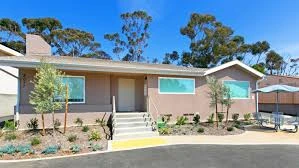Sharp Mesa Vista Hospital Information
Treatment
Who We Treat
- Children
- Teens / Adolescents
- Young Adults (18–25)
- Adults
- Seniors/Older Adults
- Older Adults
- Adolescents
- Male and Female
- Pregnant Women
Treatment Focus
- Older Adults
- Bio-Medical
- Young Adults
- Pregnant Women
Approaches
- Individual Treatment
- Bio-Medical
- Evidence-Based
- Medical
- Group Therapy
- Cognitive Behavioral Therapy (CBT)
- Dialectical Behavior Therapy (DBT)
- 1-on-1 Counseling
- Relaxation Therapy
- Medication-Assisted Treatment (MAT)
- Life Skills Training
- Relapse Prevention Counseling
Conditions We Treat
- Depression
- Anxiety
- Bipolar Disorder
- Post Traumatic Stress Disorder (PTSD)
- Trauma
- Psychosis/Schizophrenia
- Schizophrenia
- Bipolar
- Eating Disorders
- Co-Occurring Disorders
Substances We Treat
- Alcohol
- Benzodiazepines
- Chronic Relapse
- Heroin
- Cocaine
- MDMA/Ecstasy
- Ecstasy
- Psychedelics
Languages
- English
Aftercare
- Intensive Outpatient Program
- Aftercare App
- Continuing Care
- Support Meetings
Level of Care
- Outpatient
- Intensive Outpatient Program (IOP)
- Day Treatment
- Aftercare/Continuing Care
Experience
On-Site Amenities
- Pool
Personal Amenities
- Air-Conditioned Rooms
- Shared Rooms
On-Site Activities
- Yoga
Special Considerations
- Young Adults Program
Smoking and Vaping Policy
- Smoking Allowed in Designated Areas
- Vaping Allowed in Designated Areas
Accreditations
-
The Joint Commission
The Joint Commission accreditation for addiction and behavioral health signifies that a facility has met rigorous standards in patient care, treatment, and safety. This recognition assures patients and professionals of the facility's commitment to providing high-quality, evidence-based care in the fields of addiction and behavioral health, fostering trust and confidence in their services.

Additional Locations
Sharp Mesa Vista Hospital Accepts The Following Insurance Plans
Find the best treatment options. Call our free and confidential helpline today!

























